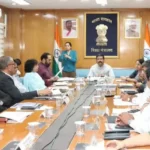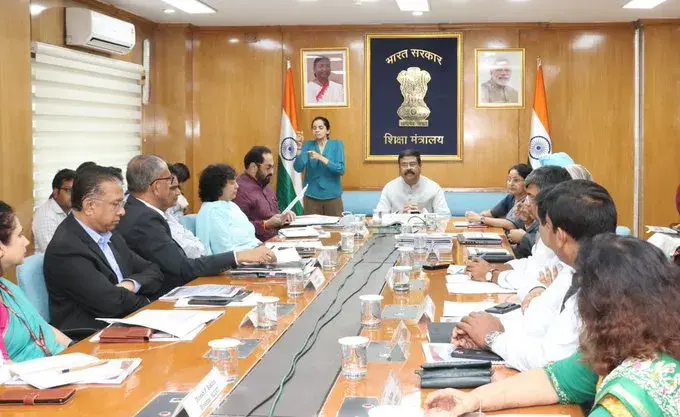ArdorComm Media Bureau
October 20, 2022
The first “National Credit Framework” (NCrF), which integrates credits acquired via school education, higher education, and vocational and skill education, was launched by the Union ministry of education on Wednesday.
The draft of the NCrF was made available for public feedback by Union Education Minister Dharmendra Pradhan, who referred to it as a “game-changer.”
“It will open numerous options for further progression of students and inter-mingling of school and higher education with vocational education and experiential learning, thus mainstreaming skilling and vocational education. NCrFwill also enable students who have dropped out of mainstream education to re-enter the education ecosystem,” he said.
While there is already a credit-based system in place for technical and higher education, school and vocational education will be integrated for the first time. The NCrF seeks to integrate learning across all areas, including academics, career-related skills, and experiential learning, which includes relevant experience and professional levels attained.
A high-level committee made up of representatives from the UGC, AICTE, NCVET, NIOS, CBSE, NCERT, education ministry, DGT, and skill development ministry prepared the draft NCrF.
According to Pradhan, who emphasised that NCrF will aid in making India’s economy $5 trillion in the next 25 years, NCrF will be the most essential instrument under NEP 2020 for realising these goals. India is embracing technology at an unprecedented rate. Reforms must be implemented to reward education, training, and experience. A crucial step toward obtaining 100% literacy in the following two to three years will be to give credit for learning new information, receiving practical training, and having positive social effects.
The draft states that credits will be granted based on learning hours from the fifth grade to the PhD level. As of now, 30 total learning hours per credit are being evaluated.
In order to assign credits and credit levels, the draft stated that “NCrF recognises no hard separation between different areas of learning, i.e. arts and sciences, vocational and academic streams, curricular and extra-curricular for the purpose of assignment of credits and credit levels.”
Every learning can be “creditized” under NCrF if it has been assessed. Exams, class tests, training and skilling, field trips for skill education, on-the-job training, internships, apprenticeships, experiential learning, and relevant experience are all ways to earn credits in addition to traditional classroom instruction and learning. Other ways to earn credits include laboratory work, innovation labs, sports, games, yoga, physical activity, performing arts, music, handicraft work, social work, NCC, bag-less days, and examinations.
By converting classroom instruction to competency- and learning-outcome-based education and learning, such a strategy would also narrow the achievement gap in learning outcomes, according to the draft.
The Academic Bank of Credits (ABC) will be used to operate the NCrF. An ACB for higher education was introduced last year by the University Grants Commission, which oversees higher education in India. The ABC serves as a digital database for student credits. It is currently only applicable to higher education.
ABC may digitally record the academic and other credits obtained from accredited institutions, allowing for the redemption of credits and the granting of the appropriate award while taking into consideration the credits obtained at different NCrF levels. To facilitate quick verification and portability, the credits may also be connected to Digi locker.
The National Education Policy (NEP) 2020, which advocates for “no hard separations” between vocational and academic streams, will be put into effect in part by the NCrF. According to the policy, through 2025, at least 50% of students in the K–12 and higher education systems must have access to vocational education.
Additionally, in order to increase open and distance learning options, credits will be given to students who participate in online programmes. This would aid in overcoming the limitations of physical infrastructure & scalability while boosting access, equity, and affordability and assuring quality and accountability, according to the draft.
Source: PIB


